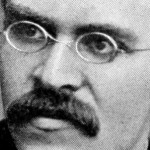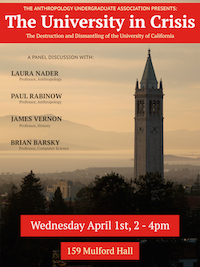How the Philologist Became a Physician of Modernity: Nietzsche’s Lectures on German Education
by Paul Reitter and Chad Wellmon
The essay begins:
In January of 1869, Friedrich Nietzsche was offered a peach of a job—a professorship in classical philology at the University of Basel. Nietzsche was just twenty-four and far from completing his dissertation, but the university’s standards for employment were looser than those of its German counterparts. Nietzsche was delighted, so much so that upon learning the good news, he broke into song: he spent the rest of the day singing melodies from Tannhäuser, his favorite opera. The position, to be sure, had what some scholars might have considered a drawback. On top of teaching eight hours a week at the University, Nietzsche would be required to give an additional six hours of instruction at a local Gymnasium But this wouldn’t be a problem, Nietzsche had told his Doktorvater, Friedrich Ritschl, one of Germany’s most renowned classicists. Ritschl passed that message on to the hiring committee, along with his imprimatur, and the appointment was made.
 When Nietzsche set off for Basel, then, Ritschl likely felt confident that he had helped launch another brilliant academic career. Yet only a year later, Nietzsche had begun to move away from the kind of work—studies of Diogenes Laërtius, contributions to an Aeschylus lexicon, analyses of Roman and Greek meter—that had so enthused his mentor, prompting him to tout Nietzsche as the most precocious student he had ever seen. Nietzsche had also begun to show signs of deep disillusionment. Indeed, he pledged to a friend that he would “publicly expose” the whole Prussian system of education.
When Nietzsche set off for Basel, then, Ritschl likely felt confident that he had helped launch another brilliant academic career. Yet only a year later, Nietzsche had begun to move away from the kind of work—studies of Diogenes Laërtius, contributions to an Aeschylus lexicon, analyses of Roman and Greek meter—that had so enthused his mentor, prompting him to tout Nietzsche as the most precocious student he had ever seen. Nietzsche had also begun to show signs of deep disillusionment. Indeed, he pledged to a friend that he would “publicly expose” the whole Prussian system of education.
Nietzsche soon made good on his promise through a series of lectures titled On the Future of Our Educational Institutions, which were held at Basel’s city museum between January and March of 1872. In these presentations, Nietzsche took aim at all of Germany’s chief institutions of postprimary learning: the Realschule, the Gymnasium, and the university. He also attacked individual academic specializations, including his own field. Philology, he maintained, was both a key symptom and a cause of a larger process of cultural decline. Nietzsche’s Basel lectures are notable for a number of reasons, including the new urgency and depth gained by Nietzsche’s early reckoning with his discipline and the German educational system as a whole. When situated within the conditions and debates to which they respond, the lectures reveal how Nietzsche the philologist became the physician of modernity and its ills. Continue reading …
This article makes the case that the lecture series On the Future of Our Educational Institutions, which Friedrich Nietzsche held in 1872 and scholars have long neglected, marks a crucial point in the development of the philosopher’s outlook. In doing so, the article shows that Nietzsche’s lectures resonate in suggestive ways with twenty-first-century debates about higher education.
PAUL REITTER is the director of the Humanities Institute at Ohio State University, where he also teaches in the German Department. His most recent book is Bambi’s Jewish Roots and Other Essays on German-Jewish Culture (Bloomsbury, 2015).
CHAD WELLMON is an associate Professor of German at the University of Virginia and author, most recently, of Organizing Enlightenment: Information Overload and the Invention of the Modern Research University (Johns Hopkins, 2015). His “Touching Books: Diderot, Novalis, and the Encyclopedia of the Future” appeared in Representations 114 (Spring 2011).

